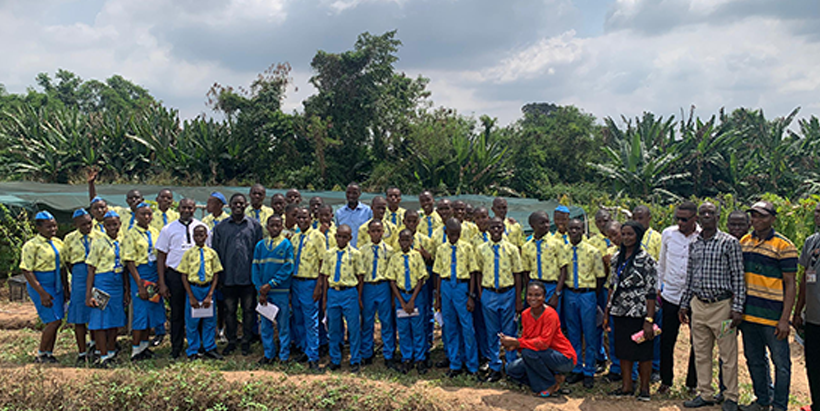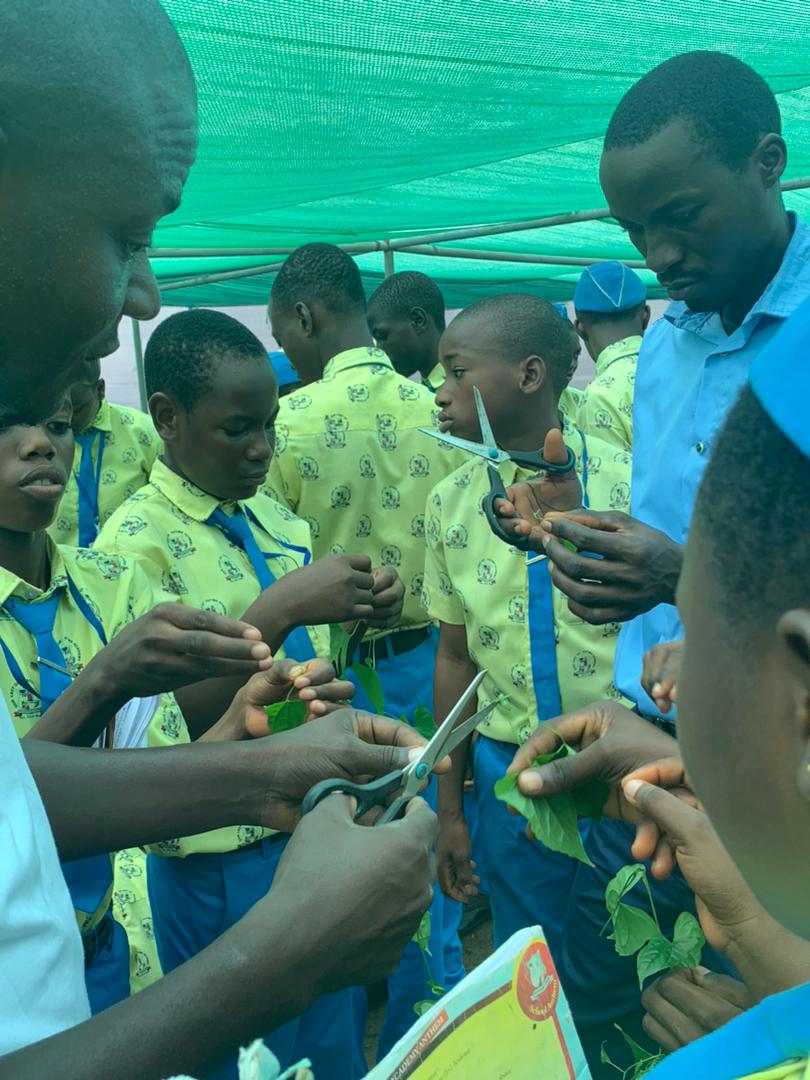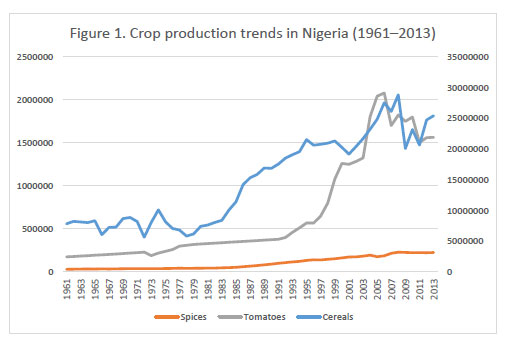For most of her life, Heritage Ajolo kept her dream a secret. When her classmates at Our Lady of Fatima Academy asked what she wanted to become, the SS2 student hesitated before quietly saying she wanted to be a farmer, before bracing herself for laughter shortly. In a world where her peers aspired to study medicine, law, and technology, agriculture seemed like a choice for the past over the future.

The IITA team with the students and teachers during a field visit
That uncertainty got encouraged on a humid November morning when Heritage stepped into the IITA–CGIAR’s tissue culture laboratory in Ibadan, where she saw tiny yam plantlets floating in transparent vessels, growing without soil, sunlight, or the backbreaking labor that made farming look outdated in her community.
“I now know about planting in a clean, well-managed lab environment,” she said, her voice steady with new confidence. “Coming here has made me proud of my ambition.”
Heritage was one of forty SS1 and SS2 students from Iwo, Osun State, who visited IITA to explore modern farming technologies. The visit, led by the school’s principal, Reverend Father Frederick, was initiated to revive interest in agriculture and improve yam productivity in their community.
“Our immediate community focuses on yam farming more than anything else,” Father Frederick explained. “We have land and resources, but we lack the skill. We are very interested in learning how to produce yam seedlings to help our community and increase income. We’re delving into the agenda of diversification and want to pique the interest of our students to have an appreciation for agriculture.”
At the institute, Julius Taiwo, Crop Vegetative Officer representing GoSeed, IITA’s seeds platform, received the students. He led them on a guided tour through various facilities, beginning at the hydroponics lab, where they saw yam vines grown in a substrate supplemented with nutrients without the use of soil, and then to the leaf bud cutting screen house, where the students demonstrated how to cut and plant leaf bud cuttings to produce seed yams.
“I used to think plants couldn’t grow without sunlight,” said SS1 student Wahab Treasure, watching the vines thrive. “Now I know farming doesn’t have to be as stressful as I once thought.”
Afterwards, the group visited the tissue culture laboratory, where scientists multiply yams, cassava, and plantain varieties in sterile conditions. Taiwo explained that the lab serves as a gene bank for preserving important crop varieties and producing disease-free planting materials that can transform agricultural productivity.
“The tissue culture process allows us to clean, preserve, and multiply crops at scale,” Taiwo told the students. “It’s the kind of innovation that ensures food security for future generations.”
The students’ curiosity deepened as they inquired about how soon farmers would be able to access these technologies and how they themselves could become involved.
In response, Taiwo noted that IITA, through its commercial platform, plans to sustain engagement with the school beyond the visit. “That’s why we want to engage them as partners,” he said. “First, we will set up a demonstration plot on the school premises for students and then extend it to farmers around the community.”
The collaboration aligns with Our Lady of Fatima Academy’s vision of linking learning with community development. With IITA’s technical support, the school aims to become a hub for seed yam production, to bridge the gap between research and production.
As the students boarded their bus back to Iwo, they carried more than notebooks; they carried a new perspective.
For Heritage Ajolo, agriculture is no longer a dream to hide, but the future she is ready to embrace.
Contributed by Anu Oyeleye and Mercy Diebiru-Ojo



No Comments